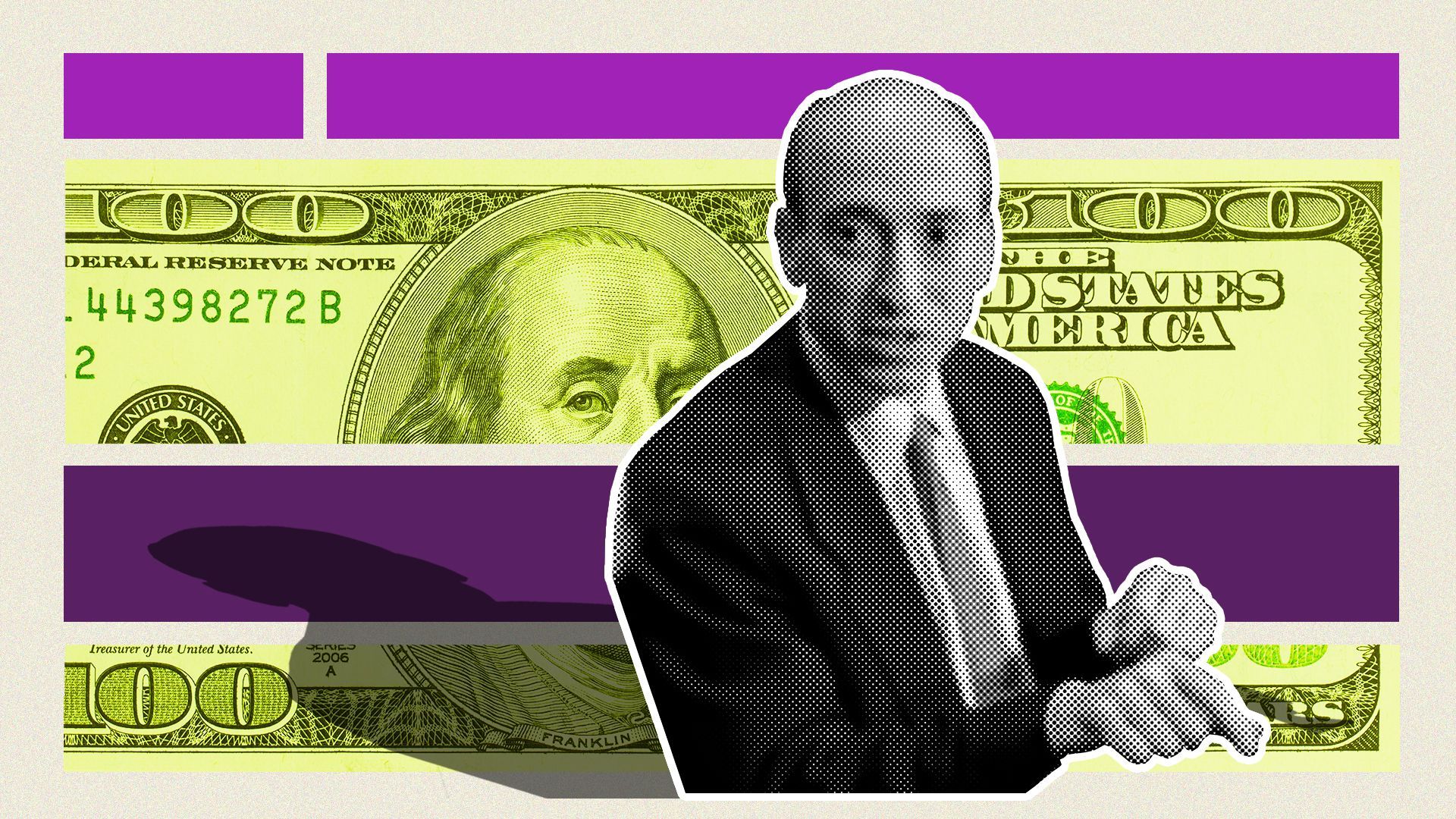New SEC chairman is changing the regulator's approach
Add Axios as your preferred source to
see more of our stories on Google.

Photo illustration: Shoshana Gordon/Axios. Photo: Andrew Harrer/Bloomberg via Getty Images
The U.S. Securities and Exchange Commission has generally been a pretty sleepy regulator — as evidenced by Tesla CEO Elon Musk’s continued tweets despite a pricy settlement — but new chairman Gary Gensler might change all that.
Driving the news: In the short period since Gensler’s nomination, the SEC has taken an interest in hotly watched areas like cryptocurrencies, blank check companies, private funds and climate change.
- Specifically, new disclosures regarding the impact on climate change are expected to be at the top of the agency’s priorities, given President Joe Biden’s focus on the issue.
Between the lines: “The indication is that [Chairman Gensler’s] a person that rolls up his sleeves and gets things done,” says Chris Hayes, senior policy counsel at the lobby group Institutional Limited Partners Association.
- Hayes also noted Gensler was very effective as head of the Commodities Futures Trading Commission.
The big picture: Certain market trends are expected to shape the agency’s work in the near future, per Gensler’s recent testimony to the House Appropriations Committee:
- Crypto: So far, the SEC has mostly signaled its views via enforcement actions, much to the frustration of the industry. However, Gensler’s genuine interest in the technology, along with the efforts of pro-crypto Commissioner Hester Peirce and the recent elevation of the SEC’s fintech office, suggest that the agency could be ready to deliver more regulatory guidance in this area.
- IPOs and SPACs: The past year’s boom of special purpose acquisition companies has led to recent scrutiny from the SEC regarding disclosures and the ability to include financial forecasts that are not permitted in the IPO process.
- Private funds: Gensler notes that the number of private equity and venture capital funds has significantly grown even in the last five years, and the emergence of new approaches and business practices raises regulatory questions around investor protections. Specifically, he points out a recent allowance for private fund managers to waive their fiduciary duties.
- Fintech: New apps for stock-trading played a central role in recent events like the GameStop saga, prompting the agency to take a closer look at how retail investors interact with them.
Additionally, Commissioner Allison Herren Lee recently proposed that regulators consider private market reform, especially in the areas of investor accreditation and Regulation D, the cornerstone of venture capital and startup fundraising.
What they’re saying: “As our capital markets have grown, though, the SEC has not grown to meet the needs of the 2020s,” Gensler told the House Appropriations Committee.
Yes, but: There’s a difference between a regulatory agency’s ambitions and what it can actually accomplish.
- It has to follow specific rule-making processes that include the time-consuming tasks of publishing proposals and collecting comments from the public.
- The agency also has to consider the political risk of bold changes if they have undesired effects such as additional disclosures pushing companies to remain or go private at higher rates, warns Kansas University professor of law Alexander Platt, who focuses on enforcement of securities laws.
What’s next: The SEC’s comment period on climate change impact disclosure ends on June 15, so it may move to make some proposals after that.
